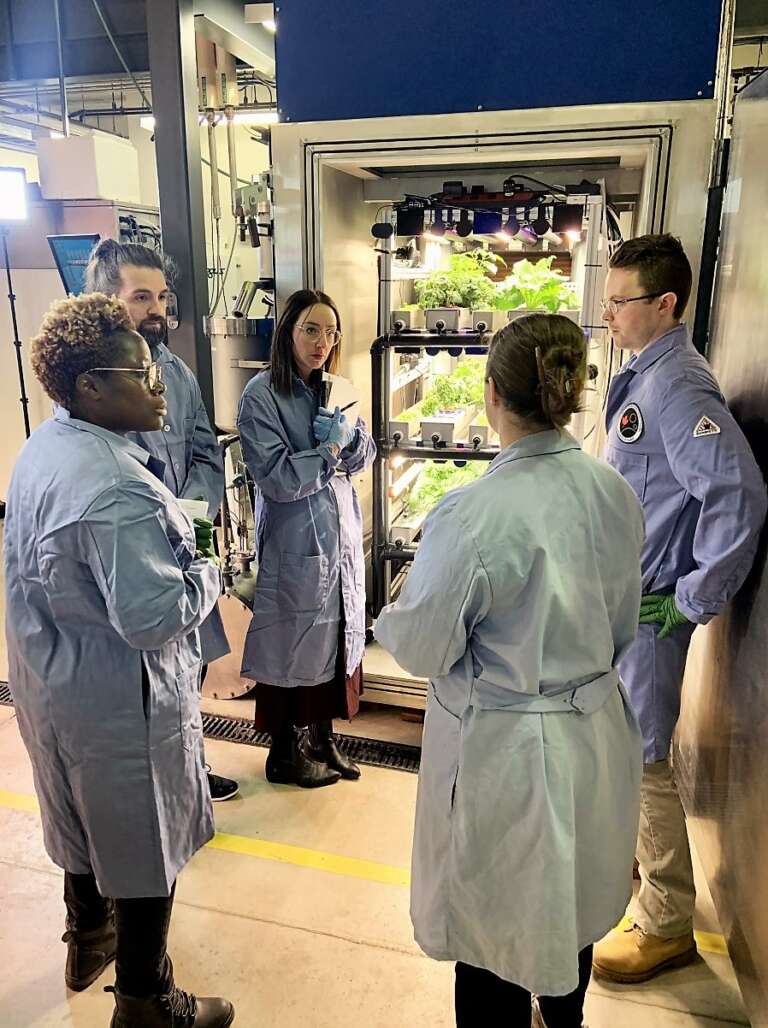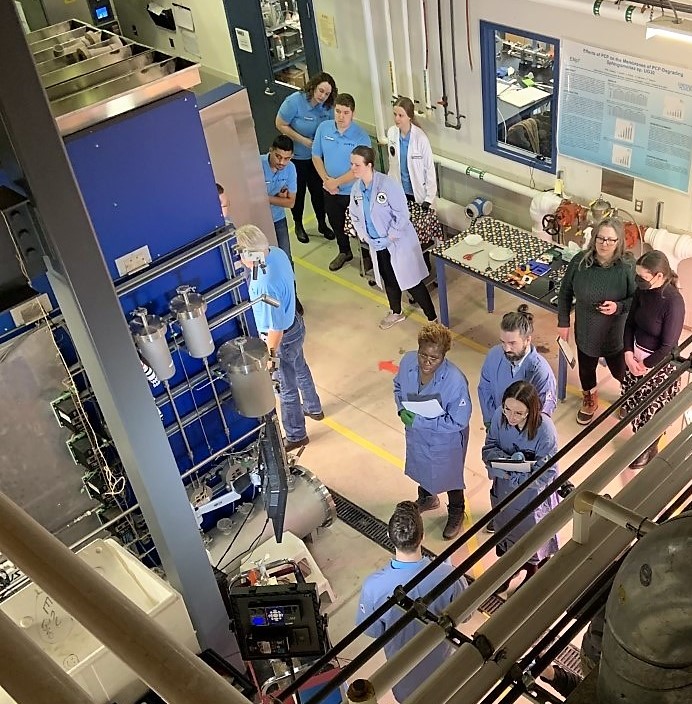
Students from the University of Guelph’s Ontario Agricultural College are feeling optimistic their entry in the Canadian Space Agency’s (CSA) Deep Space Food Challenge will advance to Phase 3 of the multi-year contest.
This week, the team met with CSA members in the Controlled Environment Systems Research Facility (CESRF) on campus to unveil the system that could one day be used to grow food during lengthy space missions.
Called Canada GOOSE, or Growth Options for Outer Space Environments, the food-growing system is a self-contained, plant-growth chamber that uses advanced environment control technology to grow vegetables, fruits and mushrooms without soil, sunlight or even fresh water.
As the CSA panel watched, the U of G team cranked open the door of the sealed growth chamber to reveal multiple levels of plant pods filled with lettuce, chard, tomatoes, broccoli and more.
GOOSE student team leader Jared Stoochnoff, a post-doctoral researcher in the School of Environmental Sciences (SES), explained the system features calibrated LED light systems that mimic the sun and can match the needs of each crop.
“The temperature, carbon dioxide and circulation within the growing chamber are carefully controlled using a low-wattage system that requires no more energy than a video gaming device,” he said.
Contest to drive advancements for more sustainable food production

The plants thrive on a hydroponic system that delivers nutrients to the plants using a growing medium the team designed, explained Rosemary Brockett, a second-year SES master’s student and Arrell Scholar who noted it took several tries to get the system just right.
Other team members demonstrated their app developed specifically for the project that builds on U of G research into precision agriculture and allows remote control of the chamber environment.
Nearly fully self-sustaining, the system requires only a few hours of maintenance a week to yield as much as 150 kilograms of food a year.
The Deep Space Food Challenge was launched in 2021 by the CSA in partnership with Impact Canada to encourage development of new technologies to produce food for future space missions. A similar challenge is under way in the U.S. with support from NASA.
The contest is partly science fiction, imagining a world of long-term space missions in which astronauts would produce their own food, and partly based in the realities here on Earth, where there’s a growing need for more sustainable food production.
The U of G team was one of 10 Canadian teams selected last year to present their prototypes to the CSA panel.
Deep Space Food Challenge winner to be announced in 2024
Dr. Mike Dixon, retired professor of environmental science and director of the CESRF, says the GOOSE project builds on nearly three decades of research at U of G that have made it among the world leaders in controlled environment agricultural technology.
“Previous research combined with legacy technology and the technology the GOOSE team have been developing give the team an advantage we hope will help them advance to the next phase,” he said.
The lessons learned, he added, can also be deployed for growing systems here on Earth to help grow fresh produce in challenging environments such as Canada’s North.
If selected next month to move to Phase 3, the U of G team will receive $100,000 in grant funding and have 12 months to further refine their technology and demonstrate the GOOSE system can produce food that is both nutritious and palatable.
The final grand prize winner will be announced in spring 2024 and will receive $380,000 in grant funding.
Contact:
Dr. Mike Dixon
mdixon@uoguelph.ca
Theresa Rondeau Vuk
CESRF program manager
trondeau@uoguelph.ca
